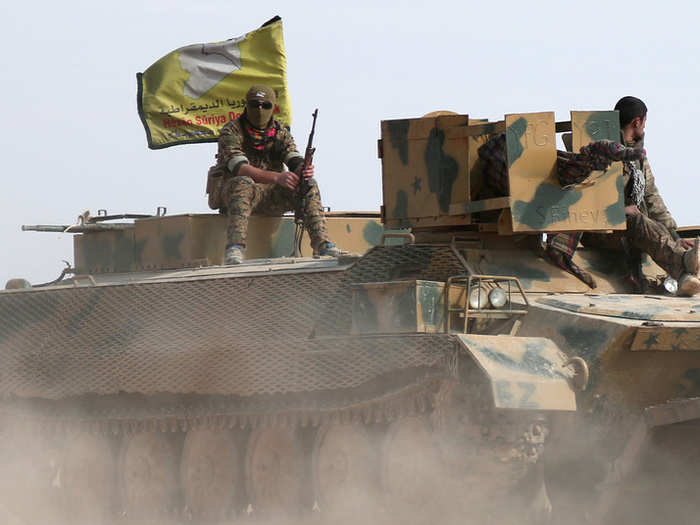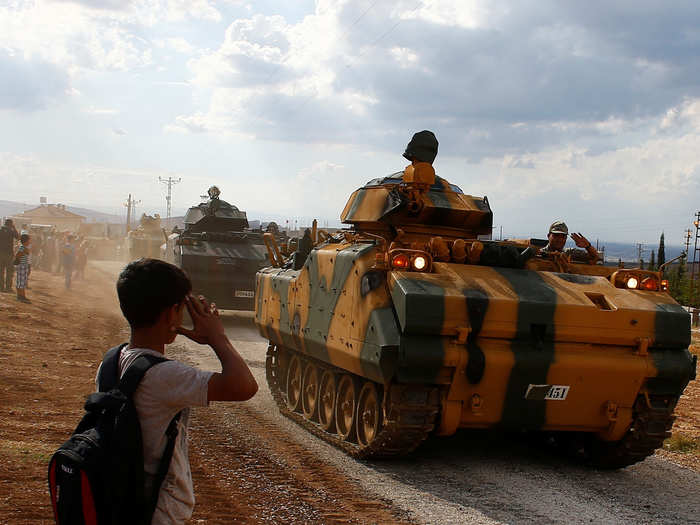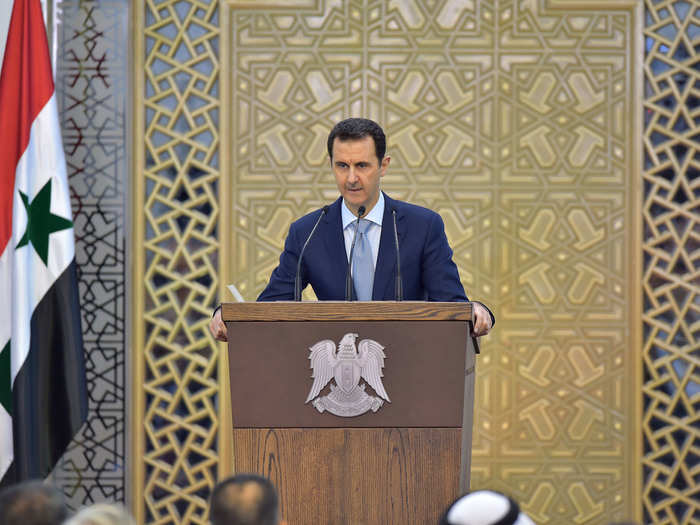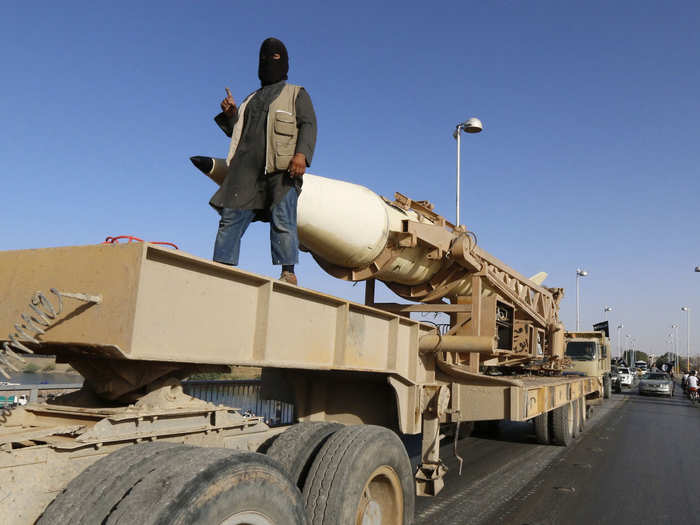- Home
- slideshows
- miscellaneous
- Here are the 5 major players that will feel the impact from Trump's decision to withdraw troops from Syria
Here are the 5 major players that will feel the impact from Trump's decision to withdraw troops from Syria
US troops, currently numbering around 1,000

Syrian Democratic Forces, led by the Kurds

The Syrian Democratic Forces, also known as the SFD, are the United States' main allies in the region and have been fending off Islamic State militants for years.
The partnership began in 2014, after ISIS militants surrounded the Kurdish town of Kobani in northern Syria, which lies along the Turkish border. Seeking to prevent the attack, the US began arming and training secular Syrian Kurdish militia while providing aerial support, which proved to be a successful strategy.
The group at the time called itself the YPG and was tied to the Kurdistan Workers Party, the PKK, which have long fought an armed conflict for Kurdish independence against Turkey. The party has been listed as a terrorist organization by NATO, the US, UK, Japan, and the EU, and Turkey has expressed concern for the US decision to arm a longstanding enemy.
At the suggestion of the US, the YPG rebranded itself as the Syrian Democratic Forces (SDF), teaming up with other Arab and minority militias in the region. The SDF, led by Kurdish forces, now controls a sizeable swath of land in northeastern Syria.
It says it lost more than 10,000 of its own fighters over the course of the conflict. It currently has roughly 60,000 members in the northeast.
The group has fought alongside the US for several years in the fight against Islamic extremism in the region. It now says it feels betrayed by Trump's decision to withdraw its troops.
"This military operation in northeast Syria will have a great negative effect on our war against the ISIS organization and will destroy all that has been achieved in terms of stability over the past years," the group said in a statement, according to The New York Times.
The group added that it would "not hesitate for one instant to defend ourselves," against what it called "Turkish aggression" on its homeland.
Mustafa Bali, a spokesman for the SDF, wrote on Twitter on Monday that Trump's decision would "ruin the trust and cooperation" built between the group and US troops.
"#SDF is committed to the security mechanism framework and has been taking necessary steps to preserve stability in the region," he wrote. "However we will not hesitate to turn any unprovoked attack by Turkey into an all-out war on the entire border to DEFEND ourselves and our people."
What lies ahead for the SDF remains unclear, as the rest of Syria is controlled by either hostile Syrian government forces, other opposition groups, or Turkish forces. Last month, a UN committee tasked with rewriting the Syrian constitution excluded meaningful input from Kurdish forces.
And while the US has supported the movement militarily, it has avoided supporting the group politically in order to quell tension with Turkey.
The Turkish armed forces

As of Monday, it remained unclear when Turkish forces would actually cross into northeastern Syria.
Turkey's motivation for invading northeastern Syria stems from its longstanding conflict with the PKK. According to The New York Times, Turkey has closely watched the expansion of the SDF along its southern border and fears that they could pose a security threat in the future.
These concerns prompted President Recep Tayyip Erdogan to call Trump on Sunday and discuss his plans for an incursion.
Turkish forces occupy a small area in northwestern Syria since 2016. Turkey has referred to the area as a "Safe Zone."
Turkey also wants to be able to create a space inside Syria where it can transfer 2 million Syrian refugees currently being housed in Turkey. According to Reuters, Turkey appears to be immediately focused on expanding to a currently Kurdish-controlled area between the towns of Ras al-Ain and Tel Abyad. A US official told Reuters that US forces had stepped down from observation posts there.
Syria's government, led by Bashar Al Assad and backed by Russia, Iran, and China.

Syria's government has faced a tense battle to hold onto power in the region and has faced international backlash of its role in the Syrian civil war.
President Bashar al-Assad and his family have faced sanctions for the brutal crackdown by Syria's army. Despite facing widespread calls for his resignation, Assad was reelected in 2014.
Currently, the government reigns over the largest portion of Syria, with its capital in Damascus, though it has vowed to reclaim lost land. Russia and China have supported the government "politically, militarily, and also economically," as it has tried to rebuild its power over the fractured land.
Moscow maintains strategic interest in Syria, and maintains a naval base in Tartus, along Syria's Mediterranean coastline.
China and Syria benefit from close trade ties, and China is eager to expand its global presence and maintain its standing as an economic leader.
Iran, with few Middle East allies, has maintained an important relationship with Syria since the Islamic Revolution in 1979, according to the BBC. Iran has provided Syria with weapons and Iranian forces have fought in Syria for Assad's regime.
Maintaining an alliance with Syria gives Iran access to the border of Israel — Iran's enemy.
Islamic State prisoners

The SDF maintains control of tens-of-thousands of ISIS members and their families, including around 70,000 women and children in a compound in the Syrian city of al-Hol, according to the Atlantic.
It's unclear what would happen if a conflict were to break out. Turkey has faced criticism in the past for its notoriously porous border, which allowed foreign fighters to enter into Syria over the course of the conflict and join the Islamic State, and some are skeptical that Turkey will be able to handle such a large collection of Islamic State prisoners given this context.
A resurgence in Syria and Iraq is also of major concern — according to The New York Times, ISIS still has as many as 18,000 fighters quietly stationed across Iraq and Syria.
Popular Right Now
Popular Keywords
Advertisement